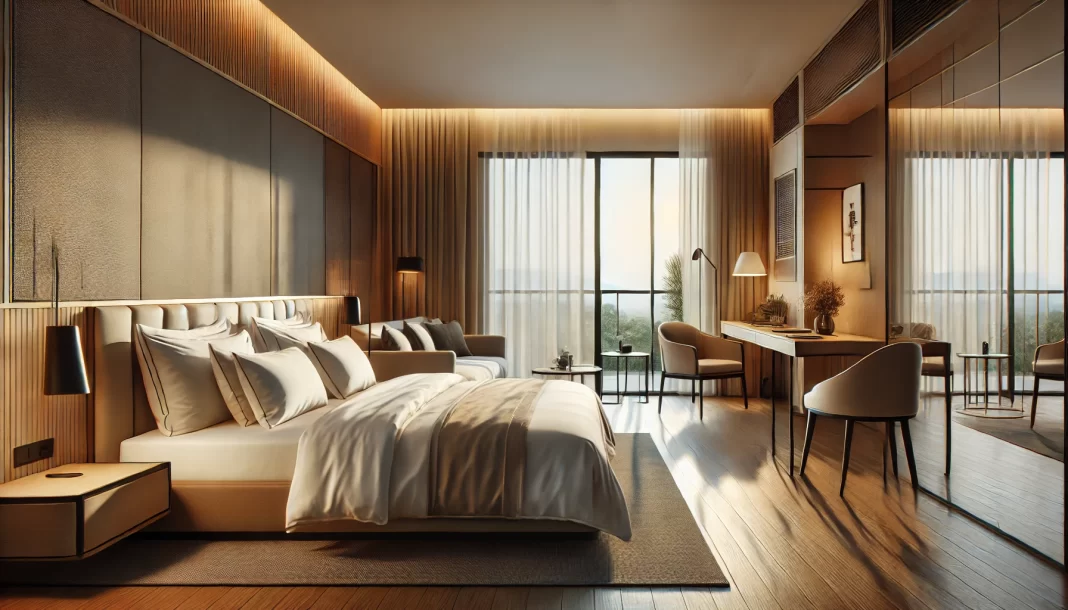In the hospitality industry, efficient room management is crucial for smooth operations and guest satisfaction. OPERA Property Management System (PMS) by Oracle is a widely used tool that helps hotels manage their room inventory effectively. Within OPERA, room types are designated by specific codes, each representing a unique room configuration. One such code is SK1B. In this blog post, we’ll explore the meaning of room type SK1B in OPERA software, its components, and its significance in hotel operations.
Decoding the Room Type Code SK1B
Room type codes in OPERA are typically alphanumeric, with each character or set of characters representing specific attributes of the room. While these codes can be customized by each property, they often follow a common structure. Let’s break down the code SK1B:
- S: This character might indicate the room category. For instance, ‘S’ could stand for ‘Standard,’ denoting a basic room offering essential amenities.
- K: The second character often represents the bed type. In this case, ‘K’ likely stands for ‘King,’ indicating that the room is furnished with a king-sized bed.
- 1: The numeral can denote the number of beds in the room. Here, ‘1’ suggests that the room contains one king-sized bed.
- B: The final character may specify a particular feature or location of the room. For example, ‘B’ could indicate that the room has a balcony or is located in a specific building or wing of the hotel.
Therefore, a room type coded as SK1B in OPERA software likely refers to a Standard room with one King-sized bed and an additional feature denoted by ‘B’, such as a balcony.
Importance of Room Type Codes in OPERA Software
Understanding and utilizing room type codes like SK1B is vital for several reasons:
Streamlined Reservation Process
Accurate room type codes enable front desk and reservation staff to quickly identify and assign rooms that meet guests’ preferences, enhancing the booking experience.
Efficient Inventory Management
Clear room classifications help in monitoring room availability, facilitating effective inventory control, and ensuring optimal occupancy rates.
Personalized Guest Experience
Recognizing the specifics of each room type allows hotel staff to cater to guests’ individual needs, such as providing a room with a king-sized bed for those who prefer it, thereby improving guest satisfaction.
Revenue Optimization
Differentiating room types supports dynamic pricing strategies, allowing hotels to adjust rates based on room features, demand, and seasonality to maximize revenue.
Customizing Room Type Codes in OPERA
It’s important to note that while there are common conventions, room type codes in OPERA can be customized to align with a hotel’s specific room configurations and operational requirements. This flexibility ensures that the coding system is intuitive and relevant to the property’s unique offerings.
Best Practices for Managing Room Types in OPERA
To effectively manage room types in OPERA, consider the following best practices:
Consistent Naming Conventions
Establish and maintain consistent naming conventions for room type codes to ensure clarity and ease of use among staff members.
Regular Updates
Periodically review and update room type codes to reflect any changes in room configurations, renovations, or the introduction of new room categories.
Staff Training
Provide comprehensive training for staff to ensure they understand the room type codes and can utilize them effectively in their daily operations.
Utilize OPERA’s Features
Leverage OPERA’s functionality to manage room types, including configuring room features, managing inventory, and generating reports to inform decision-making.
Conclusion
In summary, the room type code SK1B in OPERA software represents a specific room configuration, likely a Standard room with one King-sized bed and an additional feature such as a balcony. Understanding these codes is essential for efficient hotel operations, enabling streamlined reservations, personalized guest experiences, and optimized revenue management. By implementing best practices in managing room types within OPERA, hotels can enhance operational efficiency and guest satisfaction.



